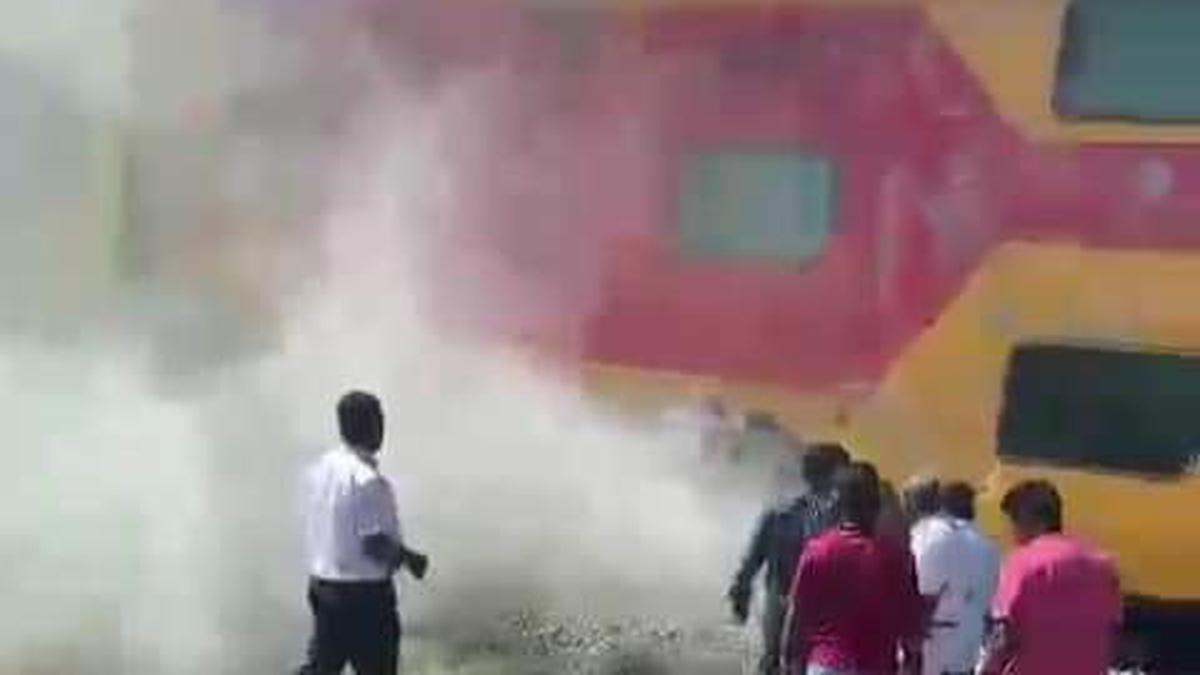
Smoke emanates from Bengaluru-bound double decker train near Gudiyattam
The Hindu
Double decker train from Bengaluru to Vellore halted after passengers noticed smoke from wheels. No injuries reported. Repairs done, train resumed journey after 15 min. Smoke due to overheating of brackbinding. Jolarpet railway police registered case, investigation ongoing.
A Bengaluru-bound double-decker superfast train was halted near Gudiyattam railway station in Vellore after passengers noticed smoke emanated from the wheels of the train on Thursday (July 13) morning.
However, the train resumed its journey after a delay of 15 minutes. No one was injured in the incident, police said.
Railway officials said that the Chennai - Bengaluru double-decker superfast train was heading towards Gudiyattam railway station at 9.32 a.m. when a few passengers found smoke emanating from under the wheels of Coach six (C-6) of the train.
They informed the loco pilot in the train, who halted the train and alerted the station manager of Kavanur railway station. As the train was on the downline before platform one of Gudiyattam railway station, the station manager in Gudiyatham was informed about the incident by Kavanur SM.
Subsequently, a team of railway engineers and Railway Protection Force (RPF) at Gudiyattam railway station rushed to the spot and undertook repairs to put the train back in order. The smoke was stopped and the train resumed its journey at 9.47 a.m towards Bengaluru.
Railway officials said that smoke started to emit from the wheels of the train due to overheating of the brackbinding. A case has been registered by Jolarpet railway police. Further investigation is on, railway officials said.













